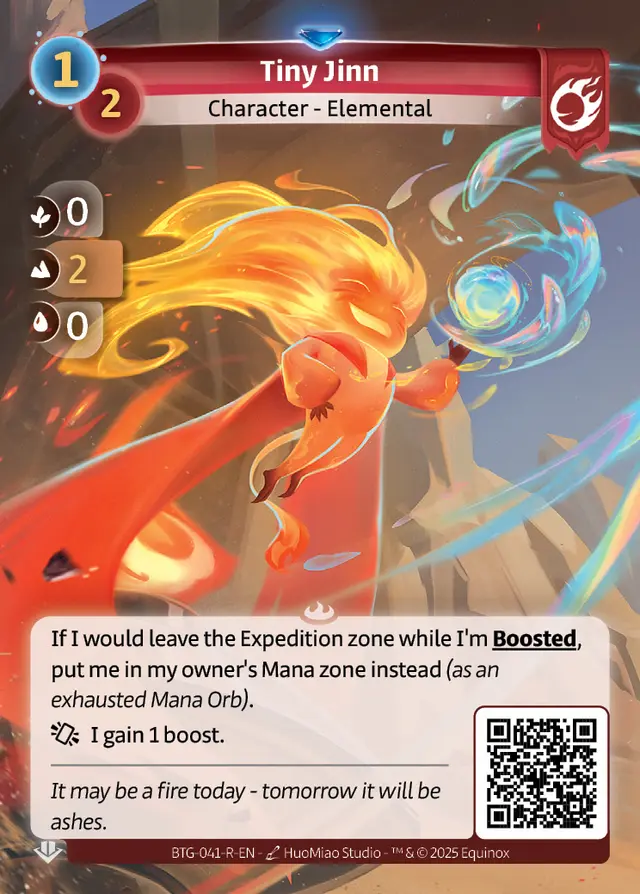Tiny Jinn


It may be a fire today - tomorrow it will be ashes.
Story
As I descend the long sandstone staircase, Haven's cold humidity—the damp chill that inexorably flakes the paint on frescoes and eats away at the bas-reliefs—gradually gives way to a stifling heat. That heat doesn't come from the dim light of the torches, but from deeper. It rises in bursts that drift in the air, bringing intoxicating scents with them. The aroma of sulfur and incense. At the bottom of the stairs, I come to a large room carved into the rock. It was here, in the feverish darkness of this chamber, that Rune was crowned the first Kuningas of Asgartha. It was here, cut off from the rest of the world, that the Bravos Creed was enacted. I wander around the tiers of seats, gazing at the countless urns that fill the alcoves and stone shelves, belonging to heroes of old, some of whose names are half erased.
Sticks of incense are placed in front of each one. Some are lit, diffusing their heady aroma, others extinguished and waiting to be rekindled. But the central brazier, whose hissing column of smoke disappears into an opening in the rocky ceiling, smolders most of all. Within it, incubated by the flames, rests the egg of the Phoenix, which the Bravos have waited centuries to see reborn. And to care for the sleeping bird, a multitude of little Jinn are there. It's they who keep the fire continuously lit and ensure that the nest continues to burn. They can be seen floating in the air like will-o'-the-wisps, generating fire with nothing but the pressure of their little palms. No doubt they are the true guardians of this sacred place. I get closer and put my hand over the ardent flames, just high enough to keep from burning myself.
Inspiration
Originating in pre-Islamic mythology, Jinn are fantastical creatures shaped from smokeless fire. With the ability to shapeshift at will, they were said to have lived in desolate places, whether near waterways or in forests or deserts. While some could be malicious, it was also said that philosophers, poets, and soothsayers were sometimes inspired by Jinn. They also appear in many stories, from A Thousand and One Nights to Victor Hugo's poem "Les Djinns".
Narrator
Atsadi
Date
391 AC